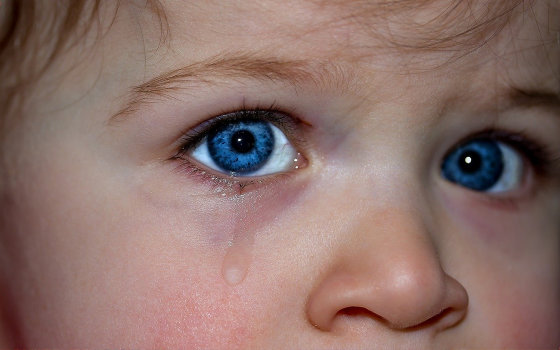What are the characteristics of people who have a 'victim mentality' and what are the causes?

Regarding people who unconsciously take actions such as 'always asking others to recognize their victims' and 'frequently reflecting on their past experiences of being victimized,' researchers say that they 'have a high tendency to be victims.' Define. Scientific American, an academic media, explains how people with a high tendency to victim consciousness perceive things and what the cause is.
The Tendency for Interpersonal Victimhood: The Personality Construct and its Consequences
(PDF file)
Unraveling the Mindset of Victimhood - Scientific American
https://www.scientificamerican.com/article/unraveling-the-mindset-of-victimhood/
Whether or not you have a victim consciousness can be measured by the following four items. Please rate the following 4 items on a scale of 1 to 5, with 1 being “Not applicable at all” and 5 being “Completely applicable”.
1: It is important for me to recognize that the person who hurt me was 'unfairly treated'.
2: The way people treat people around them is more conscientious and moral than how they treat themselves.
3: When someone close to you is hurt by your actions, it is important to demonstrate that your actions were the right ones.
4: I can't stop thinking about the unfair acts others have done to me.
When evaluating 4 to 5 for all questions, it can be said that the person psychologically ``has a high tendency to have a victim consciousness in interpersonal relationships''.
A research team led by psychologist Rahav Gabay of Tel Aviv University in Israel describes the ``tendency of victim consciousness'' as ``continuously feeling that one is a victim, and this is generalized in many human relationships. As a result, the center of one's identity becomes the awareness that one is a victim.'

According to the research team, the ``tendency of victim consciousness'' is composed of the following four elements. This is simply a rephrasing of the first four items.
1: Always asking people to recognize the victim
2: Moral elitism
3: Lack of empathy for the pain and suffering of others
4: Often ruminate on past traumatic experiences
Researchers say that 'trauma' and 'being victimized' are different things in the process of creating victimhood. This is because the victim consciousness is created without actually having serious damage or trauma. The opposite is also true, researchers point out that severe trauma doesn't necessarily mean victimhood. This is because the psychological processes and outcomes of being victimized and actually being victimized are different.
The details of the four items are as follows.
◆ 1: Always seeking recognition of the victim
Constantly seeking understanding of one's suffering is a common trauma response. Trauma makes people unable to accept the idea that the world is a rehabilitative and moral place. By accepting suffering, we can regain confidence that the world is a fair and just place.

This reaction is also natural for victims who want the perpetrator to admit their mistakes and show their guilt. Previous (PDF file)
◆ 2: Moral elite feeling
Moral elitism is a mechanism for protecting against deeply hurt feelings and maintaining a positive self-image. Highly stressed people tend to deny their aggressiveness and impulsivity and project themselves onto others. They perceive others as threats and perceive themselves as persecuted, weak, moral human beings. By classifying yourself as 'holy' and others as 'pure evil', you protect your self-image. However, the result is stunted self-growth and an inability to see ourselves and the world in a more complex way.
◆ 3: Lack of empathy for the pain and suffering of others
Those who scored high on the item ``When someone close to you is hurt by your actions, it is important to demonstrate that your actions were the right ones,'' were more likely to say, ``I am a victim.'' They only have thoughts in their minds and are unaware that people are suffering. (PDF file) Past research has shown that people who have been wronged or who remember being wronged ignore the suffering of others and say, ``I can behave aggressively and selfishly.'' It has been shown that there is a tendency to think It seems that such people are often unable to ask for help from those around them as a result. Studies have also shown that increased victimhood within a group reduces empathy for adversarial groups and increases conflict.

◆ 4: Often ruminating on past victimization experiences
People who are more likely to often ruminate on past traumatic experiences talk about the causes and consequences of interpersonal injustices rather than thinking about solutions. However, such an act of rumination makes people attempt to review and reduces their motivation for forgiveness. Population-level analyzes also show that affected populations recurrently ruminate on traumatic events. For example, in Israeli schools attended by Jews, the number of Holocaust teaching materials and curricula increases year by year. While modern-day Jews were not direct victims of the Holocaust, Israelis are fascinated by the Holocaust and fear another Holocaust, researchers say.
When interpersonal conflict arises, people may try to maintain a positive, moral self-image, and as a result, both parties may produce very different subjective facts. In other words, perpetrators tend to underestimate their wrongdoings, and victims tend to perceive their acts as more immoral, intentional, and serious. This way of thinking has a fundamental effect on how people perceive and remember. Researchers have shown that 'interpretation bias', 'attribution bias', and 'memory bias' characterize the tendency of victim consciousness.
・Interpretation bias
There are two types of interpretive bias, one is about 'aggression in human relationships'. Researchers found that people with higher victimhood tendencies perceive both low-severity aggression, such as 'no help' and high-severity aggression, such as 'attack on humanity', to be more serious.
The second interpretive bias is the bias against future hurt, and people with a high tendency to be victims tend to think that when a new manager comes to their department, even though they haven't met yet, the manager is 'inconsiderate.' Studies have shown that people are more likely to think, 'He won't help me.'

・Attribution bias
In addition, those who tended to have a high sense of victimhood tended to think that the person who committed the unfair act had negative intentions. It is said that it is easier to feel 'sa' than it actually is. In 2005, it was shown that the extent to which people feel that ``a terrible event that occurred in a relationship was intentional'' is related to ``how bad the event was perceived''. is also consistent with research showing the existence of attribution bias.
・Memory bias
In addition to the above, people who tend to be victims tend to recall aggressive behavior, feelings of hurt, and words that express negative emotions. It has been found that people who tend to have a high sense of victimhood in interpersonal relationships do not make positive interpretations and have difficulty recalling positive words. It is believed that
In addition to the above, people who tend to have a high victim consciousness are less likely to 'forgive' others and are more aggressive toward revenge.
◆Where does victim consciousness come from?
At the individual level, there are many possible causes for victim mentality. However, researchers believe that the 'anxiety type' in attachment behavior is strongly related to victimhood. Anxious types tend to seek approval and constant confirmation from others, and act without questioning their own worth. Anxious people, on the other hand, expect to be rejected by others, but feel that their worth and self-esteem depend on them. For this reason, we try to stabilize unstable human relationships by gaining attention, consideration, and evaluation from the other party.
However, in modern times, there are many individuals and groups who have a victim mentality as an identity both politically and culturally. This study uses Jewish Israelis as a sample, and it is possible that it may not apply to all people in the world, but it is important to remember that in the process of socialization, victimhood is developed. Being input also means that it is also possible to input a “growth way of thinking” in socialization. Being traumatized does not necessarily lead to a victim mentality. Researchers say that even if you are traumatized, you can take advantage of the experience and give hope to others with similar experiences.

Even at the group level, if we can learn that it is possible to have healthy pride within the group without hatred toward people outside the group, things will change dramatically. By seeing reality as clearly as possible, we can realize that we, or those outside of our group, are not necessarily evil, but are fundamentally people who want the same thing. The researchers said this is an important step in making long-term changes.
Related Posts:
in Note, , Posted by darkhorse_log







